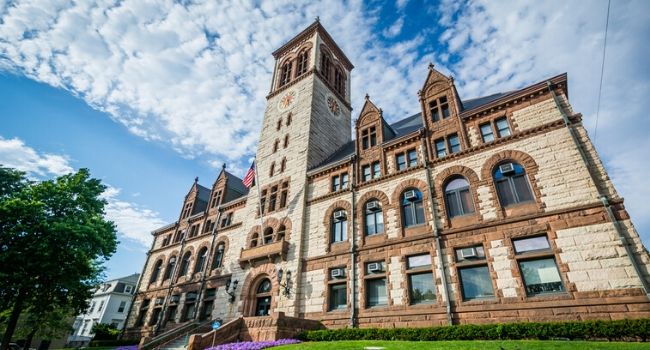
Cambridge Becomes Fourth Massachusetts Community To Ban Municipal Facial Recognition Use
A bill is currently before the state House that would ban government use of biometric technology until the legislature regulates how agencies can adopt it.
- By Haley Samsel
- Jan 15, 2020
The city council of Cambridge, Massachusetts voted on Monday to become the fourth community in Massachusetts to ban the municipal use of facial recognition software, extending the state’s reputation as a hub for growing debate over the technology.
Cambridge, the home of Harvard University and the Massachusetts Institute of Technology, among other universities, took its first steps to restrict the use of facial recognition after the communities of Brookline, Northampton and Somerville passed similar bans last year.
The sudden increase in facial recognition bans across the state can be attributed to a campaign led by the American Civil Liberties Union of Massachusetts focused on “pressing pause” on government use of the software, which the group says has accuracy issues, particularly for people of color. Several studies have found that facial recognition software is less accurate when identifying people of color versus white people.
Due to those advocacy efforts, a bill is before the state House that would implement a statewide moratorium on the use of facial recognition and other biometric technologies, including analyzing a person’s walk or voice, until the legislature regulates how agencies can use the technology.
“Massachusetts cities and towns are stepping up to ensure that face surveillance technology doesn’t get out ahead of our basic rights,” Kade Crockford, director of the Technology for Liberty Program at the ACLU of Massachusetts, said in a statement. “Now, Beacon Hill [the capitol] must also lead the nation by passing a statewide moratorium on this technology until there are civil liberties protections in place.”
In a tweet, Cambridge Mayor Marc McGovern said: “Cambridge joins a small but growing number of cities who are stepping up to protect residents from intrusive and undemocratic technology.”
The development comes as states and cities across the country weigh the benefits and potential abuses of facial recognition technology. Security companies and law enforcement agencies have argued that the software can play an important role in keeping people safe by allowing officers to more quickly identify a criminal suspect or remove a banned person from a property before an incident breaks out.
Congress has yet to weigh in on the issue as cities in California and Massachusetts have passed municipal bans. California has implemented a three-year moratorium on law enforcement use of facial recognition in police body cameras, while the Washington state legislature is weighing a new bill that would require agencies to file “accountability reports” on how they are using the software in order to prevent ongoing surveillance.
About the Author
Haley Samsel is an Associate Content Editor for the Infrastructure Solutions Group at 1105 Media.